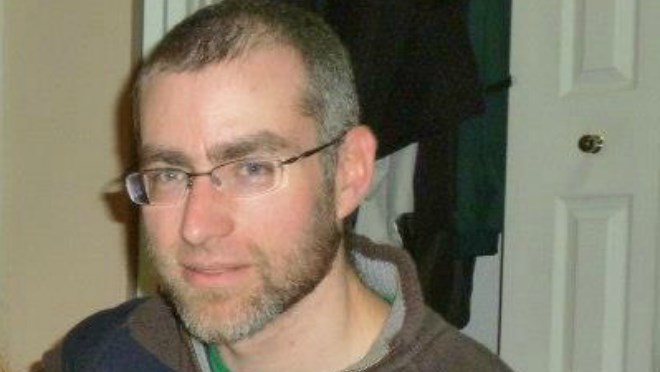Robert Steven Wright’s murder trial will be held in Sudbury, a Superior Court judge has ruled.
Justice Greg Ellies has refused the defence application for a change of venue for the second-degree murder case against Wright, as the presumption of juror impartiality was not diplaced, his ruling, released today, stated.
Wright was arrested in December, 2018, for the Jan. 27. 1998 murder of Renée Sweeney, who died after being stabbed more than 30 times while at work at a Paris Street video store.
As a result, the matter will be heard in Sudbury as long as pandemic restrictions don’t prevent it.
Ellies said the trial may have to be held in a venue within the northeast region outside of Sudbury because of constraints imposed by the COVID-19 pandemic to ensure the timely disposition of all of the outstanding cases in the region.
Wright’s defence team, lawyers Berk Keaney and Michael Venturi, argued it is not possible to have an impartial jury in the northeast due to the widespread dissemination of information in the media and the public reaction to that information, both before and after Wright’s arrest.
They said the extent of the pre-trial publicity in this case is exceptional, and argued that media coverage has been consistent over the nearly 22 years since Sweeney was killed such that there has never been an opportunity for the crime to fade from the collective memory of potential jurors in the Northeast Region.
Ellies disagreed, and said media attention to Sweeney’s murder dropped considerably after about a year. Since then, news outlets have run one or two news articles a year, usually around the anniversary of her death.
“I am not persuaded that a story or two per year about the killing over those 17 years should weigh much in favour of a change of venue,” Ellies said. “It does not, in my view, rise to the level of sustained pre-trial publicity.”
Wright’s arrest “touched off a firestorm” of media coverage, Ellies said. Since then, every court appearance by Wright has resulted in at least one news article in the local media, and, to a lesser extent, other news outlets in southern Ontario.
“I am not able to agree that the extent of the publicity following the arrest of Mr. Wright weighs in favour of a change of venue,” Ellies said. “Publicity like this is very common following the arrest of someone for a notorious crime.”
He said there is nothing exceptional in the circumstances of the offence in this case nor in the extent to which they have been the subject of pre-trial publicity such as to weigh in favour of a change of venue.
Wright’s counsel further argued that members of the public chosen as jurors cannot be expected to be as dispassionate as judges when it comes to crimes of violence, and that, while it may not be enough on its own, when the violent nature of the crime is combined with the other factors to be considered in this case, it weighs in favour of a change of venue.
“I accept that jurors, like most judges, will react emotionally to the violent nature of this crime,” Ellies wrote in his decision. “However, it is important not to confuse abhorrence of a crime with bias against an accused.
“As the public is now well aware, the attack on Ms. Sweeney was a violent one. However, it must be said that many, if not most, killings are violent. I do not see the circumstances of this killing as being so extraordinary that they create more of a risk that a juror will decide the case unfairly against Mr. Wright than in most other murder cases. As a result, I do not believe the violent nature of the crime weighs in favour of a change of venue.”
Ellies further stated public support for the victim does not weigh much in favour of changing the venue of the trial in this case.
Ellies said the public poll conducted by Wright’s counsel to determine the level of awareness and perception of the public in Sudbury about this case suffered from a number of weaknesses, and, as such, he was unable to accept that submission.
As for COVID-19, Ellies said the Superior Court is only just resuming jury trials in Toronto, Brampton, and London. In order to conduct jury trials in the first two cities, convention centres had to be rented.
Currently, there are no facilities available to conduct jury trials in the Northeast Region.
“Our hope is that we will soon be able to conduct jury trials in our three largest judicial
centres,” Ellies said. “However, those centres must be used to conduct jury trials for cases from throughout the region and it will, therefore, be necessary for me to prioritize the region's cases.
“This means that the trial in this case may be moved from Sudbury to another judicial centre in order to ensure the timely disposition of all of the outstanding cases in our region.”
Wright was originally charged with first-degree murder and arrested on Dec. 11, 2018, while working as a lab technician at the North Bay Regional Health Centre.
In August 2019, a few months before a preliminary inquiry into the charge was set to begin, the Crown sought a direct indictment on the charge of second-degree murder, which was granted, effectively depriving Wright of his right to have a preliminary inquiry and going directly to trial on the charge.
Wright has remained incarcerated since his arrest, despite several bail reviews.
A trial date has not been set.
